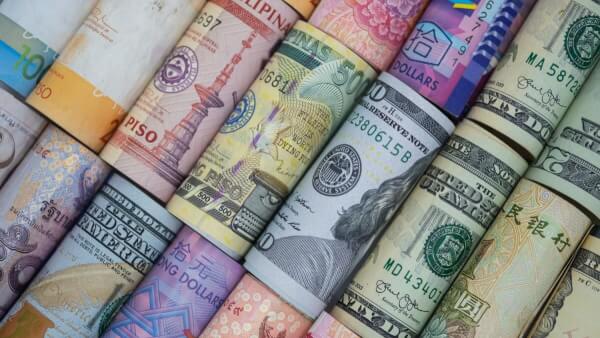How to open a foreign currency account in the US
Wondering how to open a foreign currency account in the US? Struggling to find information? Read on to find out what you need.

Vietnam is a stunning country with friendly people, delicious food, and a vibrant and varied culture. Whether you’re looking for a cosmopolitan lifestyle in Hanoi or Ho Chi Minh City, history in Hue, or beautiful beaches in Da Nang, Vietnam has it all.
If you’re thinking of relocating, you need to know how to open a bank account in Vietnam. This guide has you covered, including local and international banks in Vietnam and how to get started.
| 📑 Table of Contents |
|---|
Yes. If you’re a legal resident in Vietnam, and expect to stay for 12 months or longer, you should be able to open a bank account in Vietnam as a US citizen.
However, it’s worth noting that over the past few years, the Vietnamese government has been closing loopholes which were allowing foreigners working illegally to deposit funds in banks there. This means that you’ll need a full set of paperwork showing your legal residence status, and - often - the source of any funds being deposited.
It’s not usually possible to open a bank account in Vietnam on a tourist visa. Over the past few years, new laws have come into force which require customers to have a Temporary or Permanent Resident Card which is valid for 12 months in order to open a standard account.
If you have a residence permit for 6 months you may be able to open certain deposit accounts, but your options will be limited - and on a tourist visa you’ll struggle to find any suitable products at all¹.
Most banks in Vietnam allow you to create an account online, provided you have all of the correct documents.
A big plus is that there are international banks like HSBC and Citibank that have a strong presence in major cities like Ho Chi Minh City and Hanoi. So, if you already have an account with these banks, you can link your existing account when you're all set up in Vietnam.
Another option you can take is to create an account with these banks prior to leaving your home country so that the account is already set up with the international bank upon arrival.
Creating a bank account while living in Vietnam is a relatively simple process, although it’s important to note that changes to Vietnamese laws may impact the account services and types that are available to foreign customers.
Here are the basic steps you’ll need to take:
Step 1. Research bank options and account products to choose the right one for you
Step 2. Gather the required documents, which can vary based on the account type
Step 3. Apply for your account online or in person, uploading or presenting your paperwork
Step 4. Make your minimum opening deposit
Step 5. Once your account has been verified you’re good to go
| 📄 Here are some documents will you need for opening a bank account as a foreigner² |
|---|
|
All in all, the bank you choose should reflect the services you need most and their proximity to your work or home. While that choice will be different for everyone, some of the most popular banks in Vietnam include:
Vietnam Joint Stock Commercial Bank for Industry and Trade is a state-owned Vietnamese bank and the largest bank in Vietnam. Some perks for customers include:
|
|---|
The Joint Stock Commercial Bank for Foreign Trade of Vietnam, or Vietcombank, represents a wide network of branches and ATMs across the country.
A very popular choice among Vietnamese residents, some benefits for customers include:
|
|---|
Popular for being a larger international bank, HSBC has a fairly ubiquitous presence in Vietnam. Customers at HSBC enjoy:
|
|---|
BIDV is one of the largest banks in Vietnam, with a broad range of services for individual and business customers.
Perks include fee waivers for new customers, and a selection of add-on products you can use to tailor your account to your personal needs. Check out BIDV for:
|
|---|
Several US banks have either branches or representative offices in Vietnam, including⁶:
- Citibank
- Far East National Bank
- Wells Fargo
- JP Morgan Chase
Like banks all over the world, banking in Vietnam will come with its own set of fees you should be aware of for services throughout your stay.
Some of the most common fee types include:
| Fees | Amount |
|---|---|
| ATM fees | Banks commonly offer free domestic withdrawals at their own ATMs. However, fees apply for out of network or international withdrawals. To give an example, international ATM withdrawals with HSBC cost 45,000 - 60,000 VND + any extra charges added by the ATM operator⁷. It’s also important to know the kind of exchange rates you should expect to ensure you’re getting the mid-market rate at the ATM. |
| Banking fees | Banking fees are not likely to be the same as you’re used to with your US bank. Look out in particular for:
|
| International transaction fees | Receiving an international remittance may not be chargeable - but fees to transfer money out are high. HSBC as an example has a 0.11% online international transfer fee, with fees of 220,000 VND minimum to 2,200,000 VND maximum. That means you could be paying a minimum of about 10 USD, up to almost 100 USD if you hit the maximum fee for a high value international transfer. If moving money regularly between your foreign and Vietnamese accounts, the smart move would be to send money online with Wise to get the mid-market exchange rate without any additional markup or extra transfer fees⁸. |
Wise international transfers are secure, fast, and come with low, transparent fees and the mid-market exchange rate with no markup.
You can set up your payment online or in the intuitive Wise app in no time at all, for a more convenient way to send money internationally for less.
Having a bank account to hold and spend VND is essential if you’re moving there for the long term.
Use this guide to get started in picking the right account for your needs - and don’t forget, if you’re sending money to Vietnam, or plan to live there for under 12 months, check out Wise as the best way to send and receive international payments with low fees⁸ and the mid-market exchange rate.
Sources:
Sources checked on 08.10.2022
*Please see terms of use and product availability for your region or visit Wise fees and pricing for the most up to date pricing and fee information.
This publication is provided for general information purposes and does not constitute legal, tax or other professional advice from Wise Payments Limited or its subsidiaries and its affiliates, and it is not intended as a substitute for obtaining advice from a financial advisor or any other professional.
We make no representations, warranties or guarantees, whether expressed or implied, that the content in the publication is accurate, complete or up to date.

Wondering how to open a foreign currency account in the US? Struggling to find information? Read on to find out what you need.

Considering closing your foreign bank account? Discover the tax implications, benefits, and steps involved in making this decision. Learn more here.

Learn how to close your ADCB account from abroad with this comprehensive guide. Discover the steps, required documents, and tips for a smooth process.

Learn how to close your UAE bank account from abroad with this comprehensive guide. Discover the steps, required documents, and tips for a smooth process.

Learn how to close your AIB bank account from abroad with this comprehensive guide. Discover the steps, required documents, and tips for a smooth process.

Learn how to close your Emirates NBD account from abroad with this comprehensive guide. Discover the steps, required documents, and tips for a smooth process.